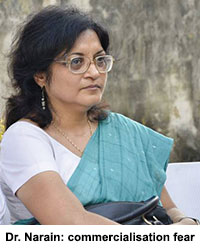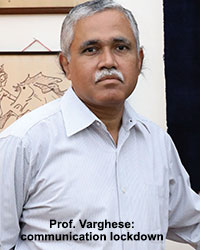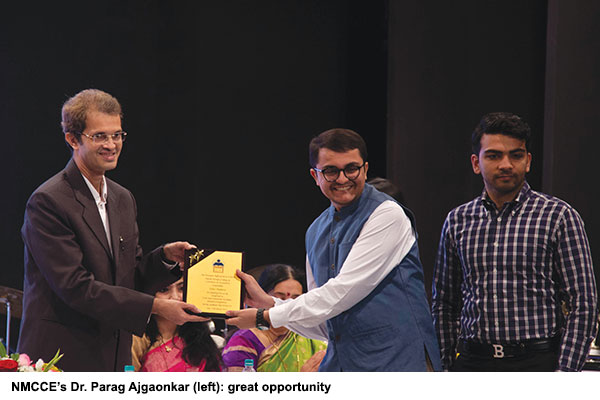The paradox of India’s multi-layered structure governing higher education is that some of the country’s most admired undergrad colleges, which should have been awarded academic autonomy decades ago, are tied to the apron strings of their affiliating universities. These colleges are ranked separately in EWIHER 2020-21

Even in the 21st century, India’s higher education system is a regulatory maze. The country’s 39,931 undergraduate colleges and 993 universities are strictly monitored, supervised and regulated by several apex organisations including the University Grants Commission (UGC), All India Council for Technical Education (AICTE) and Medical Council of India (MCI) etc, which in turn are governed by the Union ministry of human resource development (HRD) accountable to the Union cabinet. Moreover, capital intensive institutions of science, technology and business management such as the Indian Institute of Science, IITs and IIMs (and JNU) — established by special legislation of Parliament — are directly controlled by the HRD ministry.
This multi-tiered regulatory structure governing higher education was designed to enable government and the ruling party at the Centre — i.e, Congress which ruled over post-independence India for over half a century — to closely monitor and supervise higher ed institutions to ensure that capitalist and other heretical ideologies and content didn’t creep into their syllabuses and curriculums. This Big Brother supervisory system was inspired by communist ideology, especially of the (since collapsed) Soviet Union. Independent India’s first prime minister, Jawaharlal Nehru and his daughter Indira, who served three terms as prime minister after Nehru’s demise in 1964, were deeply enamoured with the Soviet Union and its control-andcommand economy.
Hence the strict regulation and ‘backdoor nationalisation’ of India’s pioneer private higher education institutions whose academic and administrative autonomy was — and remains — severely circumscribed by government organisations such as UGC, AICTE which prescribe elaborate rules and regulations for universities which stringently control and micro-manage affiliated colleges. In all states of the Indian Union, private colleges are obliged by law to be affiliated with state or Central universities.
As a result some state universities such as Mumbai, Bangalore and Madras, have 600-700 affiliated colleges. As such they are obliged to follow the prescribed syllabus of the affiliating university which conducts exams, awards grades and degrees. Under this standardisation process, even India’s most famous private colleges established more than a century ago have substantially lost their identities and reputation because syllabuses and curriculums have been reduced to the lowest common denominator, exam papers are evaluated by university appointed assessors and degrees awarded are of the affiliating university.
Following liberalisation of the Indian economy in 1991 and emergence of academically and financially autonomous private universities established by special legislation of state governments (education is in the concurrent list of the Constitution of India), which have been enthusiastically welcomed by the public, there’s been increasing pressure from top-ranked colleges for academic autonomy. They want to build their brands and recover their lost independent identities. Consequently, under its rules and guidelines UGC has awarded academic (and financial) autonomy to 747 (of 39,931 countrywide) colleges in the new millennium.
However, with typical bureaucratic muddling, autonomy is arbitrarily denied to some of the country’s most respected colleges. Curiously, several Delhi-based colleges which routinely top the annual college rankings of India Today, Outlook and several other print periodicals, including EducationWorld, are not yet autonomous. Among them: St. Stephen’s, Shri Ram College of Commerce, Lady Shri Ram College for Women, Hindu College, Miranda House and Sri Venkateswara College — all in Delhi.
These highly reputed colleges which routinely set sky-high cut-off percentages in the 90s because of the overwhelming demand for admission from higher secondary school/junior college leavers every year, are separately ranked in EducationWorld’s 2020-21 league table of India’s most admired 100 non-autonomous colleges.
Last year when the Top 100 undergrad arts, science and commerce colleges including private autonomous government autonomous and non-autonomous were ranked inter se, St. Stephen’s, SRCC, Lady Shri Ram were ranked first, second and third and Miranda House #5. In the circumstances, it’s a mystery why they have not been conferred autonomy and continue to be tied to the apron strings of Delhi University which has 90 affiliated colleges, even as 747 less acclaimed colleges are enjoying academic (and financial) autonomy.
According to informed academics in the national capital, while the St. Stephen’s management applied for autonomous status way back in 2017 and the UGC was in favour of awarding it this status, the college’s students and particularly faculty banded under the Delhi University Teachers Association (DUTA) dominated by Left ideologues hell-bent on maintaining the status quo, have thrown a big spanner in the works to deny autonomous status for India’s most admired undergrad college.
An India Today report (May 23, 2018), says DUTA obtained a legal opinion to the effect that the Delhi University Act, 1922, needs to be amended by Parliament before UGC can confer autonomy to St. Stephen’s or any other college affiliated with Delhi University. This opinion has reportedly spooked UGC and the issue of autonomy to St. Stephen’s, SRCC, Lady Shri Ram etc has been put on the back-burner, even as less reputed colleges affiliated with other universities have been awarded this coveted status.
Within St. Stephen’s while the college management wants autonomous status, the faculty is reportedly against accepting this honour on the ground that conferment of autonomy also results in financial autonomy which will inevitably lead to the dreaded commercialisation and privatisation of higher education.
“Unlike the situation in other parts of the country where bestperforming colleges are anxious to acquire academic freedom from affiliating universities, constituent colleges of Delhi University already have considerable academic and administrative freedom. For instance, in St. Stephen’s, the management has full freedom to select and appoint  faculty and reserve 50 percent capacity for students of the Christian community. We are also exempt from reserving quotas for scheduled caste and tribe students though we do so on a voluntary basis. Moreover, under the federal structure of Delhi University, colleges are deeply involved in framing the university’s syllabuses and curriculums prescribed for constituent colleges. Therefore, the promise of greater academic freedom to frame our own syllabuses and introduce new courses is not a great attraction. We prefer the status quo because our faculty and students are strongly opposed to autonomous status which is a ruse to award financial autonomy — the first step towards commercialisation and privatisation of this vintage college which will become unaffordable to students from low-income households,” says Dr. Nandita Narain, professor of mathematics at St. Stephen’s (her alma mater) and former president of DUTA (2013-17) as also of the Central Universities Teachers Association (2015-17).
faculty and reserve 50 percent capacity for students of the Christian community. We are also exempt from reserving quotas for scheduled caste and tribe students though we do so on a voluntary basis. Moreover, under the federal structure of Delhi University, colleges are deeply involved in framing the university’s syllabuses and curriculums prescribed for constituent colleges. Therefore, the promise of greater academic freedom to frame our own syllabuses and introduce new courses is not a great attraction. We prefer the status quo because our faculty and students are strongly opposed to autonomous status which is a ruse to award financial autonomy — the first step towards commercialisation and privatisation of this vintage college which will become unaffordable to students from low-income households,” says Dr. Nandita Narain, professor of mathematics at St. Stephen’s (her alma mater) and former president of DUTA (2013-17) as also of the Central Universities Teachers Association (2015-17).
 This viewpoint is clearly at odds with that of St. Stephen’s management which wants the autonomous status to revise DU’s standardised syllabuses and curricula and introduce innovative new study programmes without having to go cap-in-hand to the university for permission to upgrade this topranked 139-year-old institution to global standards. Interviewed last year after St. Stephen’s was ranked India’s #1 private (Narain disputes this description) arts, science and commerce college in the EW 2019-20 league table, Prof. John Varghese, principal of this bluechip institution, expressed optimism that St. Stephen’s would be granted “autonomous status soon”. “This will enable us to introduce new study programmes and further upgrade our academic standards,” Varghese informed EW’s Delhi correspondent Autar Nehru last year.
This viewpoint is clearly at odds with that of St. Stephen’s management which wants the autonomous status to revise DU’s standardised syllabuses and curricula and introduce innovative new study programmes without having to go cap-in-hand to the university for permission to upgrade this topranked 139-year-old institution to global standards. Interviewed last year after St. Stephen’s was ranked India’s #1 private (Narain disputes this description) arts, science and commerce college in the EW 2019-20 league table, Prof. John Varghese, principal of this bluechip institution, expressed optimism that St. Stephen’s would be granted “autonomous status soon”. “This will enable us to introduce new study programmes and further upgrade our academic standards,” Varghese informed EW’s Delhi correspondent Autar Nehru last year.
Obviously dismayed that the college’s faculty has sabotaged this initiative, this year Varghese has gone into lockdown and refused to talk to EW. Curiously neither Narain (a selfconfessed adherent of Nehruvian socialism) nor the St. Stephen’s faculty are perturbed by the possibility that with the acquisition of autonomy status, private colleges in other states of the country are likely to challenge and end St. Stephen’s high standing in the public perception.
Be that as it may, private colleges elsewhere in the country have few misgivings about aspiring for autonomous status. For instance, the management of the Narsee Monjee College of Commerce and Economics (NMCCE, estb. 1964) affiliated with Mumbai University, which has raced forward in the reclassified non-autonomous colleges 2020-21 league table to #7 (cf. its #13 ranking in the amalgamated national arts, science and commerce colleges league table last year), yearns for full autonomy.
“I am very pleased that NMCCE is ranked among India’s Top 10 nonautonomous colleges, and especially with our #1 rank in Maharashtra and Mumbai. The credit for this great achievement should rightly accrue to our dedicated faculty, aspirational students and strongly supportive management. The good news is that NMCCE was conferred autonomous status in October last year, and will become a fully autonomous institution from the start of this new — 2020-21 — academic year. The award of autonomy will enable us to realise our full potential and take this institution to greater heights,” says Dr. Parag Ajgaonkar, a commerce postgrad and business management alumnus of Mumbai University and IGNOU and former professor at the Mithibai College (1993-2017), who was appointed principal of NMCCE in 2017. Currently, NMCCE has 5,700 students and 94 full-time and 50 visiting faculty.
 According to Ajgaonkar, NMCCE will start going places after it begins a new innings as an academically independent college. “Academic autonomy will enable us to meet several immediate, medium term and long-term goals including introducing consistency and regularity in the academic calendar. We won’t have to wait for Mumbai University to set examination papers, and schedule and conduct exams as we will be conducting our own exams and will introduce our performance evaluation systems. More important, we will be free to revise our syllabuses and curriculums to align them with the requirements of industry and bridge the academia-industry gap. We’ll be free to introduce contemporary multi-disciplinary degree, and diploma/ certified courses. I believe that autonomous status gives NMCCE a great opportunity to attain substantially higher rankings in national and international league tables and to develop this college into a truly evolved and preferred, globally respected international level higher education institution,” says Ajgaonkar.
According to Ajgaonkar, NMCCE will start going places after it begins a new innings as an academically independent college. “Academic autonomy will enable us to meet several immediate, medium term and long-term goals including introducing consistency and regularity in the academic calendar. We won’t have to wait for Mumbai University to set examination papers, and schedule and conduct exams as we will be conducting our own exams and will introduce our performance evaluation systems. More important, we will be free to revise our syllabuses and curriculums to align them with the requirements of industry and bridge the academia-industry gap. We’ll be free to introduce contemporary multi-disciplinary degree, and diploma/ certified courses. I believe that autonomous status gives NMCCE a great opportunity to attain substantially higher rankings in national and international league tables and to develop this college into a truly evolved and preferred, globally respected international level higher education institution,” says Ajgaonkar.
Beyond the Top 10, several non-autonomous colleges across the country, which were modestly ranked in the integrated EW national Arts, Science and Commerce (ASC) Colleges league table of 2019-20, have made dramatic advances following the new segregated rankings. For instance, Jesus & Mary College, Delhi, ranked #16 last year, has made a dramatic Top 10 debut.
Similarly, two previously unranked Goa-based colleges — Carmel College for Women, Nuvem and Rosemary College for Commerce & Arts — are ranked #11 and #13. Moreover, the lowprofile Lady Brabourne College, Kolkata ranked #20 in 2019-20 in the integrated ASC league table is ranked #14 this year and Sai International College, Bhubaneswar has debuted in the Top 20 (#18). Even further down the Top 100 sufficiently well-known non-autonomous colleges (institutions rated by less than 25 sample respondents are not included in the league table), a host of previously unranked colleges have debuted in the Top 100 in this new category.
“I am delighted to learn that we are ranked #15 among India’s Top 100 non-autonomous colleges, and particularly that Lady Brabourne College, Kolkata (LBC, estb.1939) is #1 in West Bengal. Although LBC doesn’t have a high public profile, we are a well-established, 80-yearold all women’s college attracting students from across India and from our neighbouring countries, especially Bangladesh. Within eastern India’s academy and intelligentsia, even if not among the lay public, LBC has a very good reputation for our excellent research-oriented faculty and well-disciplined, academically focused women students.

“A major blessing is that although LBC is a state government non-autonomous college, in reality we have wide autonomy and very little, if any interference from the state government which also provides a generous annual grant. Therefore, although we are qualified for autonomy, we have not applied to UGC for autonomous status because we believe that autonomy will completely change the character of this institution and push us into commercialising LBC which has well-established academic traditions and a diverse students body. Therefore, management and faculty prefer the status quo,” says Dr. Siuli Sarkar, a graduate of LBC with Masters and Ph D qualifications from Presidency and Calcutta universities who signed up with LBC as a lecturer in 1987 and was appointed principal in 2011. Sited on a six acre green campus in south Kolkata, LBC has 2,000 undergraduate and post grad women students, including 259 boarders mentored by 95 full-time and 25 visiting faculty.
Although the EW 2020-21 league table of Top 100 non-autonomous colleges includes institutions sited in almost all the 29 states of the Indian Union, very few undergrad colleges in the BIMARU (Bihar, Madhya Pradesh, Rajasthan and Uttar Pradesh) states are included in the league table. Not even one college in Bihar (pop.104 million) and UP (215 million) is in the Top 100 league table, and only four from MP and six in Rajasthan are ranked.
However, it’s important to note that nationally low-ranked colleges are often top-ranked in their host states. And most of India’s states are as large and populous as European countries. Therefore, NMCCE and University College of Arts and Social Sciences, Osmania University, Hyderabad ranked #7 and #9 nationally are #1 in Maharashtra (pop.112 million) — India’s most industrialised state — and Telangana (pop.35 million). Similarly, Lady Brabourne College, Kolkata (India #14) is the #1 non-autonomous college of West Bengal (pop.91 million) and Presidency College, Bangalore (India #19) is #1 in Karnataka (pop. 63 million).
Likewise almost all institutions included in the EW Top 100 league table of non-autonomous colleges are highly ranked in their host states and are prime candidates for autonomous status. In this connection it’s important to note that the draft National Education Policy, 2019 of the Dr. K. Kasturirangan Committee has advised dissolution of the unwieldy university-colleges affiliation system, and has strongly recommended that small narrow-focus private colleges should merge to form large multidisciplinary universities. Apart from enabling school-leavers to choose the most aptitudinally suitable colleges, the EW league table of India’s Top 100 non-autonomous colleges on the verge of autonomy, offer their managements the best choice for mergers and alliances.
Also read: India’s top 150 private universities























